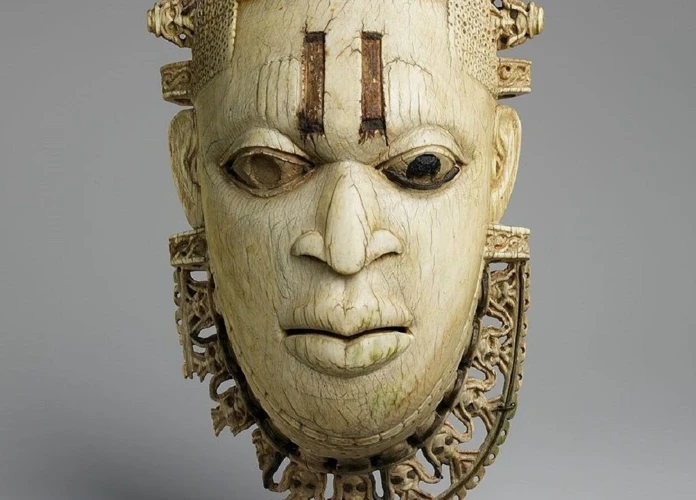The creation mythologies of different African cultures are rich and diverse, reflecting the vibrant and varied traditions of the continent. These myths tell captivating stories that explore the origins of the universe, the creation of humanity, and the role of powerful deities in shaping the world. From West Africa to East Africa, and from Central Africa to Southern Africa, each region has its own unique creation myths that are deeply rooted in the cultural fabric of its people. Join us on a journey as we explore the fascinating narratives and beliefs that have been passed down through generations in African societies, shedding light on the profound significance of creation myths in African cultures.
Contents
- 1. African Creation Mythologies: A Brief Overview
- 2. Creation Myths from West Africa
- 3. Creation Myths from East Africa
- 4. Creation Myths from Central Africa
- 5. Creation Myths from Southern Africa
- 6. Conclusion
-
Frequently Asked Questions
- 1. What is a creation myth?
- 2. Why are creation myths important in African cultures?
- 3. How do creation myths differ across different African regions?
- 4. Are African creation myths solely about the creation of the world?
- 5. Can creation myths from Africa be found in contemporary African societies?
- 6. Are African creation myths similar to creation myths from other cultures?
- 7. Are there any archaeological or historical evidence that support African creation myths?
- 8. Can creation myths from Africa be seen as allegories or symbolic stories?
- 9. Do African creation myths influence daily life and practices?
- 10. Can outsiders appreciate and learn from African creation myths?
- References
-
Frequently Asked Questions
- 1. What is the significance of creation myths in African cultures?
- 2. How do creation myths from different African cultures differ?
- 3. Who are some important figures in African creation myths?
- 4. What is the role of oral tradition in preserving African creation myths?
- 5. Are there similarities between African creation myths and myths from other cultures?
- 6. How do creation myths reflect the worldview of African cultures?
- 7. What lessons can be learned from African creation myths?
- 8. How do African creation myths promote cultural identity?
- 9. How have African creation myths influenced contemporary African art and literature?
- 10. Can African creation myths coexist with other religious beliefs?
- References
- Read More
1. African Creation Mythologies: A Brief Overview
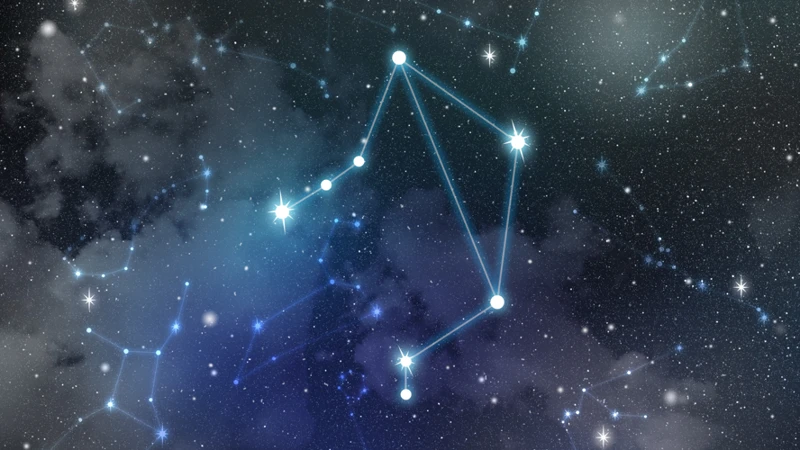
African creation mythologies encompass a vast array of beliefs and narratives that explore the origins of the world. These myths are deeply rooted in the cultural and spiritual traditions of African societies, reflecting their diverse cosmologies and worldview. African creation myths often involve the actions of powerful deities or supernatural beings who are credited with creating the universe, the earth, and humanity itself. These myths serve as a foundation for understanding the natural and social order, as well as the moral values upheld by various communities across the continent. The richness of African creation myths lies in their ability to provide an explanation for the mysteries of existence, while also imparting cultural knowledge and reinforcing social norms. Throughout the different regions of Africa, such as West, East, Central, and Southern Africa, there are distinct creation myths that have been passed down through generations, each with its own unique characteristics and significance. Understanding these mythologies gives us valuable insights into the beliefs, values, and history of African cultures.
1.1 Origins of Creation Myths
The origins of creation myths in African cultures can be traced back to ancient times, rooted in the deep connection between humanity and the natural world. These myths are often inspired by observations of the environment, celestial bodies, and natural phenomena. African societies, being deeply tied to their surroundings, developed complex stories to explain the mysteries of existence and the forces that shape the world. These creation myths served as a way to understand the origin of life, the forces of nature, and the roles of deities or supernatural beings in the creation process.
For example, in many African creation myths, the sun, moon, stars, and various animals are often central figures in the narratives. The movements of celestial bodies, such as the sun and the moon, influenced the development of myths related to the creation of day and night, seasons, and the passage of time. The constellations, like /zodiac constellations, played a role in shaping some creation myths as well, as they were believed to hold significance in celestial storytelling.
The diverse landscapes of Africa, including vast deserts, lush forests, mighty rivers, and expansive savannas, influenced the different creation myths found across the continent. African cultures viewed their natural surroundings with awe and respect, attributing divine powers to various aspects of nature. These powers were often personified as deities or powerful beings who shaped the world.
The origins of creation myths in African cultures can be linked to the interplay between humanity and the natural environment. These myths were developed to explain the mysteries of life and the universe, drawing inspiration from celestial observations, natural phenomena, and the diverse landscapes of Africa. They provided a framework for understanding the world and the role of supernatural beings in its creation.
1.2 Importance of Creation Myths in African Cultures
The importance of creation myths in African cultures cannot be overstated. These myths serve as a vital component of the cultural and spiritual heritage of various African societies, shaping their worldview and providing a sense of identity. Here are a few key reasons why creation myths hold such significance:
1. Origin and Identity: Creation myths provide a framework for understanding the origin of humanity and the world. They answer fundamental questions such as “Where do we come from?” and “Who are we?” These stories connect individuals to their ancestry and provide a sense of collective identity and belonging.
2. Explanation of Natural Phenomena: Creation myths often involve the actions of powerful deities shaping the natural world. They provide explanations for natural phenomena, such as the creation of the sun, moon, and stars, the formation of mountains and rivers, and the presence of animals and plants. These myths help humans make sense of their surroundings and develop a deeper connection to the natural world.
3. Transmission of Cultural Values: Creation myths serve as a form of cultural education, transmitting important values, ethics, and moral lessons from one generation to the next. Through these stories, African societies pass down knowledge about proper behavior, social hierarchies, and the consequences of both positive and negative actions.
4. Social Cohesion and Unity: Creation myths often contain narratives about the formation of societies and the establishment of social order. They emphasize the importance of community, cooperation, and respect for authority. By reinforcing these values, creation myths contribute to social cohesion and unity within African cultures.
5. Continuity and Rituals: Creation myths play a significant role in religious and ceremonial practices. They provide the basis for rituals, festivals, and rites of passage, strengthening the connection between individuals and their spiritual beliefs. These rituals help maintain cultural traditions and ensure the continuity of African cultural practices.
By recognizing the importance of creation myths in African cultures, we gain a deeper appreciation for the narratives and beliefs that shape these societies. These myths not only provide explanations for the mysteries of existence but also contribute to the preservation and celebration of African cultural heritage. To learn more about the celestial connections found in some African creation myths, explore the fascinating world of /zodiac-constellations/ and the role they play in these captivating stories.
2. Creation Myths from West Africa
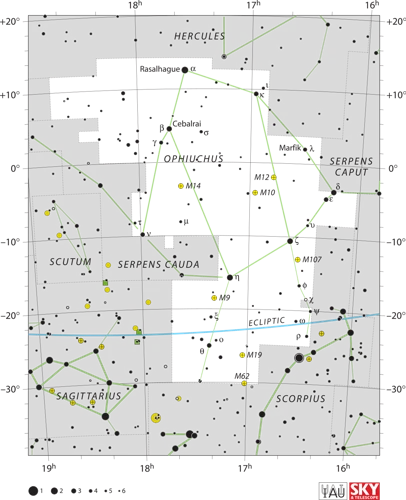
2. Creation Myths from West Africa
2.1 Yoruba Mythology: The Story of Oduduwa
In Yoruba mythology, the creation of the world is attributed to Oduduwa, a powerful deity and the progenitor of the Yoruba people. According to the myth, Oduduwa descended from the heavens on a chain accompanied by a rooster and a pigeon. He carried a bag filled with soil and a five-toed chicken. As Oduduwa descended, he spread the soil across the vast expanse of the waters below, creating the land. He then released the chicken, which scratched the ground and spread the soil, forming hills and valleys. Oduduwa is seen as the father of humanity and is revered as the first king of Ife, a prominent city in present-day Nigeria. His descendants, the Yoruba people, trace their lineage back to him.
2.2 Akan Mythology: The Creation of the Universe by Nyame
In Akan mythology, the creation of the universe is credited to Nyame, the supreme god. Nyame created the world through a series of tasks. First, he created Earth and then appointed a spider named Ananse to weave a web and connect the heavens and the earth. The web allowed Nyame to descend from the heavens and send rain to water the earth. Nyame then created different aspects of nature, including rivers, trees, and animals. Lastly, Nyame created humans and gave them the gift of immortality. However, humans eventually angered Nyame, leading to the loss of their immortality. This myth highlights the important role of Nyame as the creator and sustainer of the universe in Akan cosmology.
The creation myths from West Africa demonstrate the diverse ways in which different cultures in the region explain the origins of the world and humanity. These myths highlight the significance of powerful deities in shaping the natural and social order, and provide a foundation for understanding the cultural values and traditions of West African communities.
2.1 Yoruba Mythology: The Story of Oduduwa
In Yoruba mythology, the story of Oduduwa holds great significance. According to Yoruba beliefs, Oduduwa is regarded as the progenitor of humanity and the ruler of the Earth. The myth states that Oduduwa, who existed in a formless and primordial state, descended from the heavens down to the water-covered Earth. Upon arrival, Oduduwa carried a sacred bag containing various elements necessary for creation. As Oduduwa descended further, the bag was opened, and the earth, vegetation, and animals were released into the world. Oduduwa then molded human beings out of clay and brought them to life by breathing his own breath into them. This myth highlights the Yoruba belief in the divine origin of humans and their close connection to the Earth and deities. It emphasizes the importance of Oduduwa as the founding figure and ruler of the Yoruba people. To this day, Oduduwa is honored in Yoruba culture and is considered the progenitor of the Yoruba royal lineage, known as the Ooni of Ife. Understanding the myth of Oduduwa provides insights into the Yoruba people’s beliefs, their sense of identity, and their connection to the divine.
2.2 Akan Mythology: The Creation of the Universe by Nyame
In Akan mythology, the creation of the universe is attributed to Nyame, the supreme sky god. According to this myth, Nyame resided in the vast expanse of the sky and desired to bring order to the chaos that existed. To accomplish this, Nyame created the sun and the moon, which illuminated the world and provided a sense of balance and harmony. Nyame then turned his attention to the earth and tasked the spider Anansi to weave a web that spanned across the universe. This web served as the foundation for all life forms and connected everything together. With the web in place, Nyame created humans and animals, each with their own unique abilities and characteristics. The Akan myth of creation exemplifies the power and ingenuity of Nyame, who brought order and life to the universe. It reinforces the interconnectivity of all living beings and highlights the significance of balance and harmony in the Akan culture. To learn more about celestial bodies like the sun and moon, you can explore the Orion Nebula, which has fascinated astronomers for centuries. Alternatively, you may be interested in understanding how different celestial bodies can influence personality traits, an aspect explored in the study of astrological houses.
3. Creation Myths from East Africa
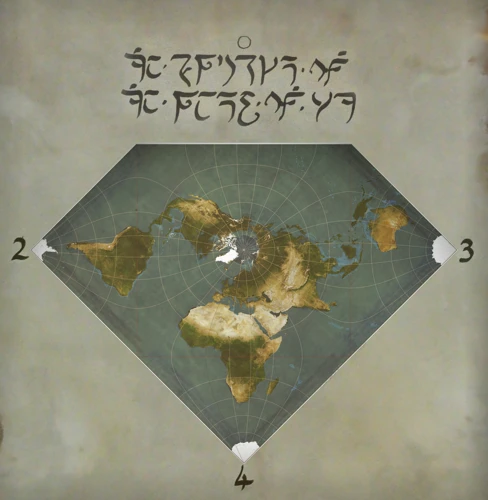
3. Creation Myths from East Africa
East Africa is home to a diverse range of creation myths that provide insights into the origin of the world according to different cultures in the region. Here are two notable creation myths from East Africa:
In Maasai mythology, Engai is the supreme god who is believed to have created the world. According to the myth, Engai sent down mountains and hills to form the landscape and then created the animals and plants. However, after experiencing trouble with the creation of humans, Engai decided to leave the Earth and dwell in the sky. Since then, Maasai people worship Engai as a distant deity and perform rituals and ceremonies to seek his blessings and protection.
In Khoikhoi mythology, Tsui or Cagn is a powerful figure who is credited with creating humans. According to the myth, Tsui took a bag of various body parts and threw them into the air, resulting in different human groups such as the black people, the white people, and the Khoikhoi themselves. Tsui also gave each group their unique languages and skills. This creation myth highlights the diversity of humanity and the interconnectedness of different groups.
These creation myths from East Africa showcase the rich cultural traditions and beliefs of the region. They provide a window into the way various communities perceive the origins of the world and their place within it. Through these myths, East African cultures pass down their history, values, and understanding of the cosmos from one generation to the next.
3.1 Maasai Mythology: Engai and the Creation of the World
In Maasai mythology, one of the prominent creation stories revolves around the figure of Engai, the supreme deity of the Maasai people. According to their belief, Engai created the world and everything within it. However, the Maasai creation myth differs from other African creation myths in that it does not involve a specific act of creation. Instead, Engai is believed to have always existed and is seen as a powerful force that oversees the world. The Maasai people hold Engai in great reverence and believe that he is the ultimate source of life and prosperity. They consider him to be a remote and unknowable deity who interacts with humans through intermediaries, such as spiritual leaders or diviners. This unique perspective on creation in Maasai mythology reflects the deep spiritual connection that the Maasai people have with their environment and their belief in the ongoing presence of Engai in their lives.
3.2 Khoikhoi Mythology: The Creation of Humans by Tsui / Cagn
In Khoikhoi mythology, the creation of humans is attributed to Tsui or Cagn, a powerful and benevolent deity. According to this myth, Tsui shaped the first humans out of clay and then breathed life into them, giving them the ability to move, think, and communicate. Tsui took great care in designing each human, ensuring that they possessed unique qualities and talents. As the creator, Tsui also bestowed upon humans the responsibility of caring for the earth and all living creatures. This myth highlights the close connection between humans and their creator, emphasizing the harmonious relationship that should exist between people and the natural world. The Khoikhoi believed that Tsui played an active role in the lives of humans, guiding them and teaching them important lessons. This creation myth serves as a reminder of the significance of humans in the grand scheme of creation and emphasizes the importance of humanity’s role as caretakers of the earth.
4. Creation Myths from Central Africa
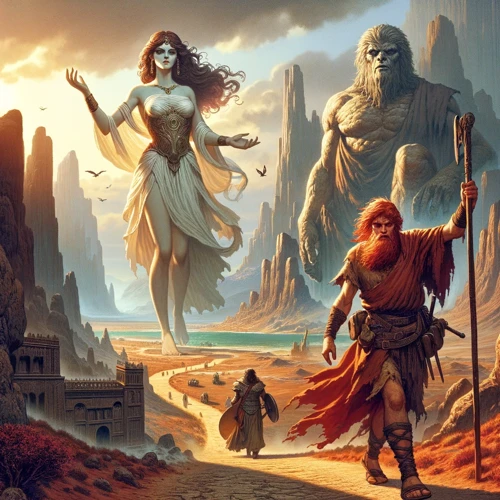
Central Africa is home to a diverse range of creation myths that highlight the rich cultural heritage and spiritual beliefs of the region. Here are two significant creation myths from Central Africa:
In Bantu mythology, the creator god Mulungu plays a central role in the creation of the world. According to the myth, in the beginning, there was only darkness and water. Mulungu, through his divine powers, created the first man and woman and placed them on Earth to populate it. Mulungu also brought light and vegetation to the world, ensuring that life could thrive. Mulungu is regarded as the supreme deity and is associated with wisdom, justice, and the natural order of the universe.
The Luba people of Central Africa have a unique creation myth involving the deity Mbombo. According to their myth, in the beginning, there was only water and darkness. Mbombo, an androgynous deity, emerged from the water and vomited the sun, the moon, and the stars. In a series of cosmic events, Mbombo continued to vomit and create various aspects of the world, including animals, mountains, and humans. Mbombo eventually became exhausted and fell into a deep sleep, leaving humans with the ability to shape their own destiny. This myth emphasizes the importance of humans as active participants in the world.
These creation myths from Central Africa showcase the cultural diversity and spiritual beliefs of different groups within the region. The Bantu myth highlights the role of Mulungu, the creator god, in bringing light and life to the world, while the Luba myth emphasizes the agency of humans in shaping their own existence. These myths not only provide explanations for the origins of the world but also offer insights into the values and worldview of Central African cultures.
4.1 Bantu Mythology: The Creator God, Mulungu
In Bantu mythology, one of the prominent creation myths revolves around the figure of Mulungu, the Creator God. Mulungu is believed to be the all-powerful deity who brought the world into existence. In Bantu cosmology, Mulungu is associated with the sky, and it is believed that he created everything that exists on earth. According to the Bantu people, Mulungu fashioned the first human beings out of clay or other natural materials. He shaped them with great care and breathed life into them, giving them the ability to think, feel, and interact with the world around them. The creation of humans by Mulungu is seen as a sacred act, signifying the connection between the divine and the earthly realms. Mulungu is also believed to be a benevolent deity who protects and guides his creations, while also maintaining the balance and order of the universe. The Bantu people hold Mulungu in great reverence and often offer prayers and sacrifices to honor him for his role as the Creator God.
Note: Click here to learn more about how the positions of celestial bodies can influence personality traits according to astrological beliefs.
4.2 Luba Mythology: The Creation of Humanity by Mbombo
In Luba mythology, the creation of humanity is attributed to a powerful deity known as Mbombo. According to the myth, Mbombo initially existed alone in a dark and watery void. Feeling a great loneliness, he had a sudden burst of energy and vomited forth the sun, the moon, and various other celestial bodies. As Mbombo continued to vomit, he created the earth and all its features, including mountains, valleys, and rivers. But Mbombo’s most significant act was the creation of nine beings who formed the foundations of human society. These beings were given different skills and attributes, such as healing, crafting, and leadership. However, Mbombo felt that his work was not complete and decided to hide his abilities and strength within human beings. This act ensured that humans would have the potential to harness their power and contribute to the world. In Luba culture, this myth serves as a reminder of the divine origins of humanity and the importance of utilizing one’s unique talents and abilities. It emphasizes the interconnectedness of all living beings and the belief that each person has a divine spark within them. The Luba people hold this creation myth dear, as it defines their understanding of the world and their place within it.
5. Creation Myths from Southern Africa
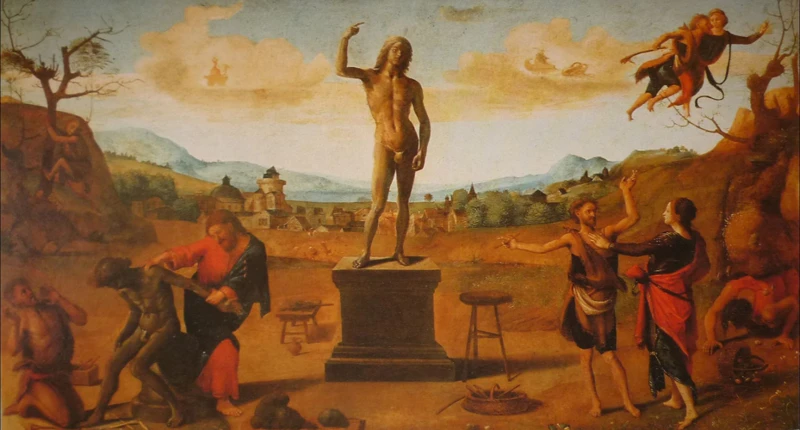
Southern Africa is home to a rich tapestry of creation myths that highlight the unique cultural beliefs and traditions of the region. These creation stories often center around the actions of powerful deities or divine beings and provide an explanation for the origins of the land and humanity.
5.1 San Mythology: The Creation of the Land by Mantis / Cagn
In San mythology, the creation of the land is attributed to the divine figures of Mantis and Cagn. According to the myth, Mantis was tasked with shaping the world, and through his actions, he formed the landscape, rivers, and mountains. Cagn, on the other hand, brought the animals and plants to life. Together, they created an intricate ecosystem and established the foundations for human existence.
5.2 Zulu Mythology: The Creation Story of Unkulunkulu
In Zulu mythology, the creation story revolves around the figure of Unkulunkulu, the great god and ancestor of all beings. Unkulunkulu is believed to have emerged from a reed in the marshes and went on to create the first humans and animals. Through his wisdom, he established the laws that governed the relationship between humans and the natural world.
These creation myths from Southern Africa not only provide an origin story for the land and humanity but also offer valuable insights into the cultural values and spiritual beliefs of the people in the region. They emphasize the interconnectedness between humans, nature, and the divine, underscoring the importance of harmony and respect within the African cosmological framework.
5.1 San Mythology: The Creation of the Land by Mantis / Cagn
In San mythology, the creation of the land is attributed to Mantis (or Cagn), a central figure in their belief system. According to the San people, in the beginning, the world was a featureless, barren place. Mantis, who possessed incredible powers, descended from the heavens and roamed the empty landscape. As he walked, he used his staff to create valleys and mountains, rivers and plains. With each step, lush vegetation sprouted from the ground, breathing life into the once desolate land. Mantis also shaped the animals and plants that would inhabit this new world. He carefully crafted each creature, giving them distinct forms, abilities, and characteristics. It is said that Mantis even taught the San people how to live harmoniously with nature, hunting for food and respecting the land. The San people celebrate Mantis as the bringer of life and the creator of their ancestral homeland. His role in the creation of the land reflects the deep connection between the San people and their environment, emphasizing the importance of nature in their culture.
5.2 Zulu Mythology: The Creation Story of Unkulunkulu
In Zulu mythology, the creation story revolves around the figure of Unkulunkulu, who is considered the creator of all things. According to the Zulu people, Unkulunkulu emerged from the primeval reeds of the Uthlanga, a marshy area. He brought forth land, animals, and human beings. Unkulunkulu is revered as the most ancient and powerful ancestor who is responsible for the well-being and protection of the Zulu people.
The creation story of Unkulunkulu begins with a period of darkness and chaos. Unkulunkulu then commanded the heavens to split open, allowing light to penetrate and illuminate the world. He separated the land and the sky, establishing order and stability. Unkulunkulu then created plants, animals, and rivers, providing sustenance and livelihood for all living creatures on earth.
After creating the world, Unkulunkulu turned his attention to human beings. He shaped the first man and woman out of clay and brought them to life. These early humans were known as the Abantu, meaning “the people.” Unkulunkulu imparted wisdom, knowledge, and moral values to the Abantu, guiding them in their interactions with each other and with the natural world.
The Zulu creation story of Unkulunkulu highlights the deep reverence and respect the Zulu people have for their creator figure. Unkulunkulu is seen as the ultimate source of life and the embodiment of wisdom and guidance. This mythology strengthens the cultural identity and provides the Zulu people with a sense of unity and purpose as they continue to uphold their traditions and ancestral beliefs.
Summary:
– Unkulunkulu is the creator figure in Zulu mythology.
– Unkulunkulu emerged from the primeval reeds of Uthlanga.
– Unkulunkulu brought forth land, animals, and humans.
– He commanded the heavens to split open and brought light to the world.
– Unkulunkulu shaped the first man and woman out of clay.
– He imparted wisdom and moral values to the humans, guiding them in their existence.
6. Conclusion
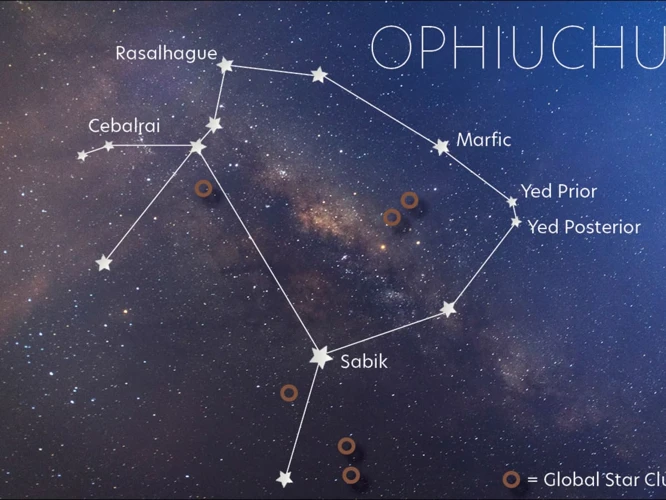
The creation mythologies of different African cultures are a testament to the rich and diverse tapestry of beliefs and traditions that exist across the continent. These myths serve as a foundation for understanding the origins of the universe, the creation of humanity, and the role of divine beings in shaping the world. From the Yoruba myth of Oduduwa in West Africa to the Maasai myth of Engai in East Africa, and from the Bantu myth of Mulungu in Central Africa to the San myth of Mantis/Cagn in Southern Africa, each region has its own unique creation stories that reflect the cultural and spiritual heritage of its people. These myths not only provide explanations for the mysteries of existence but also impart moral values, cultural knowledge, and reinforce social norms. By delving into the creation mythologies of different African cultures, we gain a deeper appreciation for the diversity and richness of African traditions, as well as the interconnectedness of human beliefs and experiences across time and space.
Frequently Asked Questions

1. What is a creation myth?
A creation myth is a traditional story or narrative that explains the origins of the universe, the earth, and humanity. These myths often involve deities or supernatural beings and provide a cultural and spiritual explanation for how the world came into existence.
2. Why are creation myths important in African cultures?
Creation myths hold immense cultural and spiritual significance in African cultures. They help to reinforce social norms, impart moral values, and provide a framework for understanding the natural and social order. These myths also connect communities to their ancestral heritage and foster a sense of identity and belonging.
3. How do creation myths differ across different African regions?
Creation myths vary across different African regions due to the diversity of cultures and beliefs found on the continent. The narratives, deities, and symbols used in these myths reflect the unique cosmologies and traditions of the respective communities, making each creation myth distinct.
4. Are African creation myths solely about the creation of the world?
No, African creation myths cover a wide range of topics beyond the creation of the world. They may include stories about the creation of specific elements like the sun, moon, and stars, the origin of animals, plants, and natural phenomena, as well as the creation of humans and the establishment of societal norms.
5. Can creation myths from Africa be found in contemporary African societies?
Absolutely. Creation myths continue to play an important role in contemporary African societies. They are passed down through oral traditions, rituals, and cultural practices, ensuring the preservation of these ancient narratives and their significance in the lives of African communities.
6. Are African creation myths similar to creation myths from other cultures?
While there may be some common themes and motifs in creation myths across different cultures, African creation myths have their own distinct characteristics. They reflect the specific cultural, religious, and historical contexts of the African continent, setting them apart from creation myths found in other parts of the world.
7. Are there any archaeological or historical evidence that support African creation myths?
Creation myths primarily exist within the realm of mythology and cultural belief systems, making it challenging to find direct archaeological or historical evidence that supports these narratives. However, the coexistence of similar motifs and beliefs across different African societies indicates their long-standing cultural significance.
8. Can creation myths from Africa be seen as allegories or symbolic stories?
Yes, creation myths often contain allegorical or symbolic elements that convey deeper meanings beyond their literal interpretations. They may serve as metaphors for natural processes, human experiences, or spiritual truths, providing insights into the worldview and philosophy of African cultures.
9. Do African creation myths influence daily life and practices?
Absolutely. African creation myths have a profound impact on daily life and practices. They influence various aspects of African culture, including religious rituals, social customs, art, music, dance, and even political structures. These myths provide a foundation for understanding the world and guide individuals in their moral and ethical choices.
10. Can outsiders appreciate and learn from African creation myths?
Absolutely. African creation myths are not only significant to African communities but also hold immense value for the broader human experience. Outsiders can appreciate and learn from these myths by studying their cultural contexts, uncovering their symbolic meanings, and understanding the universal themes they address, such as the origins of existence and humanity’s place in the world.
References
- African Creation Stories – Exploring Africa
- Kaang & the African Bushmen: Creation Myth Explained
- 98.02.03: African Myths and What They Teach
Frequently Asked Questions

1. What is the significance of creation myths in African cultures?
Creation myths hold great importance in African cultures as they provide explanations for the origins of the world, humans, and natural phenomena. They also serve as moral and cultural guides, reinforcing values, beliefs, and traditions within communities.
2. How do creation myths from different African cultures differ?
Creation myths from different African cultures vary in their narratives, characters, and symbolism. Each culture has its unique understanding of creation and the role of divine beings or ancestral figures in the process. This diversity showcases the rich cultural heritage and imagination found across the continent.
3. Who are some important figures in African creation myths?
African creation myths feature various important figures such as gods, goddesses, ancestral spirits, and mythical beings. Examples include Oduduwa in Yoruba mythology, Nyame in Akan mythology, Engai in Maasai mythology, Tsui/Cagn in Khoikhoi mythology, Mulungu in Bantu mythology, Mbombo in Luba mythology, Mantis/Cagn in San mythology, and Unkulunkulu in Zulu mythology.
4. What is the role of oral tradition in preserving African creation myths?
Oral tradition plays a vital role in preserving African creation myths. These myths have been passed down through generations in the form of storytelling, songs, chants, and rituals. It is through this oral tradition that the cultural heritage and wisdom embedded in the creation myths have been safeguarded and transmitted over centuries.
5. Are there similarities between African creation myths and myths from other cultures?
Yes, there are several similarities between African creation myths and myths from other cultures around the world. Many creation myths share common themes such as the emergence of the world from chaos, the role of a divine creator or supreme being, and the creation of humans. However, the specific details and cultural nuances differ, reflecting the unique perspectives of each culture.
6. How do creation myths reflect the worldview of African cultures?
Creation myths in African cultures reflect the worldview of the respective cultures by providing insights into their beliefs, values, and relationship with the natural world. These myths often emphasize the interconnectedness between humans, nature, and the divine, highlighting the importance of harmony, respect, and balance within the cosmic order.
7. What lessons can be learned from African creation myths?
African creation myths offer valuable lessons, teaching concepts such as respect for elders and ancestors, the significance of community, the cyclical nature of life and death, and the need for stewardship of the environment. They also impart moral values, promote ethical behavior, and emphasize the importance of cultural preservation.
8. How do African creation myths promote cultural identity?
African creation myths are deeply intertwined with cultural identity as they provide a sense of shared heritage, history, and spirituality. They help communities affirm their unique cultural expressions, rituals, and customs. By embracing and passing down these myths, African cultures strengthen their collective identity and foster a sense of belonging.
9. How have African creation myths influenced contemporary African art and literature?
African creation myths have served as a significant source of inspiration for contemporary African art and literature. Many artists and writers draw on these myths to explore themes of identity, spirituality, and social issues. By incorporating elements from creation myths, they celebrate African heritage and challenge contemporary narratives.
10. Can African creation myths coexist with other religious beliefs?
Yes, African creation myths can coexist with other religious beliefs. In many African societies, traditional creation myths are integrated into syncretic religious practices, blending with elements from Christianity, Islam, and other faiths. This synthesis allows for the simultaneous expression of multiple religious identities and demonstrates the adaptability of African spirituality.
References
- 8 Interesting African Creation Myths The World Should …
- African Myths of gods, creation and the earth
- Fon creation myth

